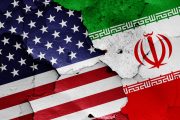
The U.S. government has confirmed that thousands of North Korean troops are currently in Russia, a development that could signal a dangerous escalation in the ongoing war in Ukraine. The presence of these soldiers has raised serious concerns about their potential role in the conflict. It has also prompted high-profile figures to call for decisive military action to address the growing threat.
DOD Confirmation
In a significant development, U.S. Defense Secretary Lloyd Austin confirmed on Wednesday that he possessed some “evidence” that North Korean troops are already on Russian soil. This marked the first official acknowledgment by the U.S. government of these deployments. Just a few days ago, Austin could not tell if North Korean troops were indeed in Russia.
The secretary made the announcement during a press conference in Brussels following a meeting with NATO defense ministers.
“There is evidence that there are DPRK troops in Russia,” Austin said, referring to North Korea by its official name, the Democratic People’s Republic of Korea.
The secretary could not confirm if the troops would participate in the war in Ukraine. He said, “What, exactly, they’re doing is left to be seen.”
While Austin did not provide an exact number of troops, he stressed the seriousness of their potential involvement in the war.
“If they’re a co-belligerent, their intention is to participate in this war on Russia’s behalf, that is a very, very serious issue,” he remarked, indicating that North Korea’s involvement could have far-reaching consequences for both Europe and the Indo-Pacific region.
White House
On Wednesday, White House national security spokesman John Kirby revealed that “at least” 3,000 North Korean soldiers had been transferred from the Wonsan region in North Korea to Vladivostok, a Russian port city, earlier this month. These troops are undergoing combat training at military bases in eastern Russia. Kirby warned that while it remains unclear if the soldiers will engage in combat, “it is certainly a highly concerning probability.”
Kirby explained that once the training is complete, these soldiers could be deployed to western Russia and participate in fighting against Ukrainian forces, which would mark a significant escalation of the conflict. He also emphasized that the presence of North Korean troops would violate multiple United Nations Security Council resolutions prohibiting military cooperation with Pyongyang.
He stated that if North Korean forces engage in combat, Ukraine would treat them as legitimate military targets.
He took the opportunity to outline yet another military aid package to Ukraine announced by the Department of Defense earlier this week, and reaffirmed the U.S. commitment to continue supplying the country with weapons.
Both Austin and Kirby maintained that the movement represents Russia’s increasing desperation in the war it intended to win within days.
“Direct Military Action”
In response to these developments, House Intelligence Committee Chair Mike Turner (R-Ohio) urged the Biden administration to take decisive action. Turner called for “serious consideration” of direct U.S. military involvement if North Korean forces enter Ukraine.
He emphasized that, following Austin’s acknowledgment of North Korean troops in Russia “preparing” for involvement in Ukraine, the administration needs to clearly define this as a red line for U.S. engagement. Notably, neither Austin nor Kirby confirmed the North Korean servicemen would fight in Ukraine.
Turner added, “If North Korean troops were to invade Ukraine’s sovereign territory, the United States needs to seriously consider taking direct military action.”
He also echoed Kirby’s statement that Ukraine should be permitted to use U.S.-supplied weapons to target North Korean forces on Russian soil.
Heightened Global Alarm
Ukrainian President Volodymyr Zelensky first raised alarms about North Korean troops preparing to support Russia during a statement on October 14. He confirmed intelligence reports showing that North Korea was not only supplying weapons, but also preparing to send thousands of soldiers to join Russian forces. Zelensky highlighted the deployment of around 10,000 North Korean soldiers and technical personnel, calling it “the first step to a world war.”
The next day, South Korea’s National Intelligence Service (NIS) said that “North Korea has dispatched troops to support Russia’s war against Ukraine,” according to The Associated Press. The NIS tracked the transportation of North Korean special forces to Russian territory via a Russian transport ship. The agency released satellite images to support these claims. According to the report,
The North Korean soldiers deployed in Russia have been given Russian military uniforms, weapons and forged identification documents, the NIS said. It said they are currently staying at military bases in Vladivostok and other Russian sites … and that they will likely be deployed to battle grounds after completing their adaptation training.
The presence of North Korean troops in Russia has triggered international alarm, particularly in South Korea. South Korean officials stated that they may consider supplying weapons to Ukraine in response to the deployment. This would represent a significant shift in that country’s approach to the conflict.
The troop deployment reflects a growing military cooperation between Russia and North Korea. In June, the two nations signed a defense agreement that may have facilitated the transfer of personnel. The treaty obligates the two countries to provide mutual military assistance if either is attacked. Notably, it was was ratified by the Russian parliament today.
War or Diplomacy?
Undoubtedly, any direct military action against North Korean forces would be an extremely risky step for the U.S., particularly given North Korea’s nuclear capabilities. Any engagement with a nuclear-armed state could rapidly escalate into a broader, uncontrollable conflict with devastating global consequences. In this high-stakes environment, strategic caution is essential. Moreover, NATO’s role in training Ukrainian troops on their soil has raised questions about potential double standards, further complicating the international response. This situation demands careful diplomacy to avoid further destabilizing the region. Yet, over the past two years, the Biden administration has consistently overlooked this vital instrument of effective foreign policy.





